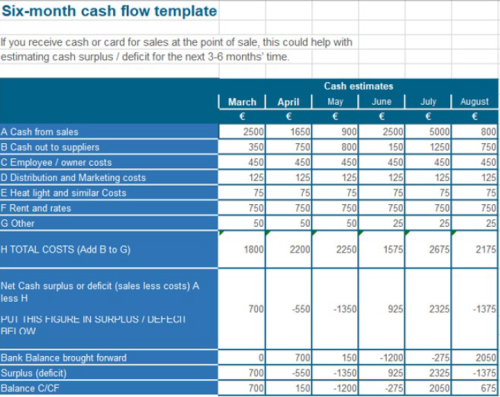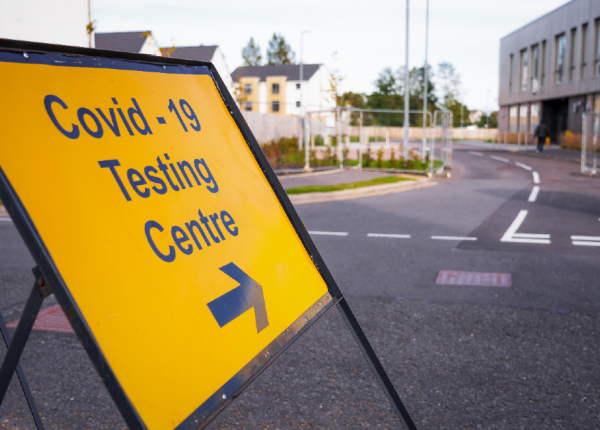
The government has updated its webpage on Financial support for businesses during coronavirus (COVID-19). Find out what financial support you can get for your business here: Financial support for businesses during coronavirus (COVID-19) - GOV.UK (www.gov.uk)
The latest business impacts survey from the Office for National Statistics (ONS) has been published.
The main points are:
• Since early January 2020, the percentage of single-site businesses currently trading has picked up slightly in both Wales and Scotland, though the proportion of their workforce on furlough remains higher than in early January.
• Scotland has consistently had the highest proportion of its single-site businesses’ workforce on furlough leave, compared with other UK countries since early December 2020.
• Single-site businesses across the UK are more likely to have less than three months of cash reserves compared with businesses with multiple sites.
• Workers in single-site businesses in the hospitality and tourism sector are approximately four times more likely to be on furlough leave (63%), compared with single-site businesses across all industries (16%) in mid-March 2021, with single-site businesses in hospitality and tourism in Northern Ireland having the highest likelihood (85%) among the UK countries.
Across all regions of the UK insufficient cash reserves is a clear issue for many smaller businesses and the government has launched the Recovery Loan Scheme today (see below).
Cash flow and business planning in these uncertain times may appear difficult but there are some practical steps you can take to minimise potential disruption to your business:
• Review your Budgets and set realistic and achievable targets for the remainder of 2021.
• Get your employees involved in a discussion of likely trading conditions and get their input on reducing costs and maintaining revenues.
• Review and flow chart the main processes in your business (e.g. Sales processing, order fulfilment, shipping etc.) and challenge the need for each step.
• Put extra effort into making sure your relationships with your customers are solid.
• Review your list of products and services and eliminate those that are unprofitable or not core products/services.
• Review efficiency of business processes and consider alternatives such as outsourcing certain activities locally or overseas.
• Agree extended payment terms with all suppliers in advance.
• Pull everyone together and explain the business strategy and get their buy-in.

Please talk to us about cash flow planning for the next six months, we can help with a template so you can do this yourself or work together to produce estimates for a variety of scenarios.
Last week we saw more than 5 million people in the UK receive their second dose of COVID-19 vaccine. Health services across the UK have now administered over 37 million vaccines between 8 December and 7 April, including over 31.4 million people with their first dose and over 5.2 million with their second.
The milestone means nearly 1 in 10 of all UK adults have received both vaccines, ensuring a high level of protection from the virus over the coming months.
Further details have been published by regional UK governments about the route out of lockdown. In Scotland, some non-essential retail shops are now open, and the devolved government was aiming to remove travel restrictions and further open the economy by 26 April, with hopes of ending most lockdown measures by the end of June. In England further easing of Covid restrictions has been confirmed for 12 April and comparable schemes are in place for Wales and Northern Ireland.
In England and Scotland it has been announced that everyone is to be given access to two rapid coronavirus tests a week from Friday, under an extension of the government's testing programme. The lateral flow kits, which can provide results in around 30 minutes, will be available for free at testing sites, pharmacies and through the post. We assume these will be available in all regions shortly.

A “Covid-status certification” system is being discussed and developed over the coming months which could allow higher-risk settings to be opened up and with more participants. The government has announced a system will be developed which will take into account three factors: vaccination, a recent negative test, or natural immunity (determined on the basis of a positive test taken in the previous six months). Events pilots will take place from mid-April to trial the system. All pilots are checking Covid status, initially this will be through testing alone but in later pilots vaccination and acquired immunity are expected to be alternative ways to demonstrate status.
The Government states it wants to see a return to non-essential international travel as soon as possible, while still managing the risk from imported cases and variants of concern. The Government hopes people will be able to travel to and from the UK to take a summer holiday this year, but it is still too soon to know what is possible.
The roadmap said that any return to international travel without a reasonable excuse, for example for holidays, would be no earlier than 17 May. Given the state of the pandemic abroad, and the progress of vaccination programmes in other countries, the government says it is not yet in a position to confirm that non-essential international travel can resume from that point. Taking into account the latest situation with variants and the evidence about the efficacy of vaccines against them, they will confirm in advance whether non-essential international travel can resume on 17 May, or whether we will need to wait longer before lifting the outbound travel restriction.
When non-essential international travel does return it will do so with a risk-based “traffic light” system. This will add to the current system a new green category with no isolation requirement on return to the UK - although pre-departure and post-arrival tests would still be needed. This new category will accommodate countries where the government judge the risk to be lower, based for instance on vaccinations, infection rates, the prevalence of variants of concern, and their genomic sequencing capacity (or access to genomic sequencing). The Global Travel Taskforce will publish its report, setting out more details on this system, later this week.
The roadmap reviews published on the 5 April can be read here: Roadmap Reviews: Update - GOV.UK (www.gov.uk)
Below is our weekly roundup of changes to government support information generally and for businesses, employers and the self-employed.
The Recovery Loan Scheme will ensure businesses continue to benefit from Government-guaranteed finance throughout 2021. Loans will include 80% government guarantee and interest rate cap.
With non-essential retail and outdoor hospitality reopening next week, Ministers have ensured that appropriate support is still available to businesses to protect jobs. From today, businesses – ranging from coffee shops and restaurants to hairdressers and gyms – and can access loans varying in size from £25,000, up to a maximum of £10 million. Invoice and asset finance is available from £1,000.
See: Recovery Loan Scheme launches today - GOV.UK (www.gov.uk)
The Coronavirus Job Retention Scheme has been extended until 30 September 2021.
Claims for furlough days in March 2021 must be made by 14 April 2021.
Employers must take steps to keep workers and visitors safe. By following the COVID secure guidelines, employers can reduce the risk of co-workers having to self-isolate if a member of staff tests positive for COVID-19, or is identified as having had close contact with someone who has tested positive.
Working from home, where possible, is essential to limiting mixing between households. People should work from home unless it is not reasonable to do so. If necessary, workers can travel for work purposes and stay away from home.
It is vital that employers play their part by:
• supporting staff to work from home
• making workplaces as safe as possible (if working from home is not possible)
• not knowingly allow workers who are required to self-isolate to attend the workplace
• encouraging employees to download and use the NHS COVID-19 app
Employers must continue to ensure the health, safety and welfare of their employees and other people in the workplace. This includes, but is not limited to workers, agency workers, contractors, volunteers, customers, suppliers and other visitors.
See: NHS Test and Trace in the workplace - GOV.UK (www.gov.uk)
Designated venues in certain sectors must have a system in place to request and record contact details of their customers, visitors and staff to help break the chains of transmission of coronavirus.
The guidance has been updated for the rules for businesses reopening, and for entering a venue.
Further countries have been added to the list. If you are a British or Irish National, or you have residence rights in the UK, you will be able to enter the country, however you must quarantine in a government approved hotel for 10 days.
See: Coronavirus (COVID-19): red list travel ban countries - GOV.UK (www.gov.uk)
The lists of and information about approved suppliers of private testing kits for coronavirus (COVID-19) has been updated.
See: Private providers of coronavirus testing - GOV.UK (www.gov.uk)
The main updates include information about deadlines for CS applications, BPS applications, and CS and ES revenue claims.
England - Fresh wave of grant funding launched as councils are called on to do their bit to continue supporting businesses
A New grant scheme launched last week: The Restart Grant scheme supports businesses in the non-essential retail, hospitality, leisure, personal care and accommodation sectors with a one-off grant, to reopen safely as COVID-19 restrictions are lifted.
Eligible businesses in the non-essential retail sector may be entitled to a one-off cash grant of up to £6,000 from their local council.
See: Check if you're eligible for a coronavirus Restart Grant - GOV.UK (www.gov.uk)
Everyone in England will be able to access free, regular, rapid coronavirus testing from 9 April, the Government has announced.
Anyone will be able to access free, rapid lateral flow tests (LFDs) for themselves and their families to use twice a week, in line with clinical guidance.
Rapid testing has so far been available to those most at risk and people who need to leave home for work, including frontline NHS workers, care home staff and residents, and schoolchildren and their families. Now rapid testing will be offered to everyone, with people encouraged to take regular tests to help prevent outbreaks and reclaim a more normal way of life.
One in 3 people with COVID-19 do not experience any symptoms and may be spreading the virus unwittingly. Rapid testing detects cases quickly, meaning positive cases can isolate immediately. Since rapid testing was introduced, over 120,000 positive cases that would not have been found otherwise have already been identified by LFDs. By making rapid tests available to everyone, more cases will be detected, breaking chains of transmission and saving lives.
Alongside the rollout of the vaccine, regular testing is going to be an essential part of the easing of restrictions as it will help us quickly suppress the spread of variants. Through new testing technology, positive cases of variants of concern are being detected faster than ever before. More people getting a test will increase the government’s ability to identify and control variants.
See: Twice weekly rapid testing to be available to everyone in England - GOV.UK (www.gov.uk)
England - Further easing of Covid restrictions confirmed for 12 April.
Outdoor hospitality will be among those reopening in England next week after the Prime Minister confirmed the roadmap is on track and planned easements can go ahead.
Further parts of the indoor economy and outdoor settings will reopen from 12 April, after data confirmed the government’s “four tests” for easing Covid restrictions had been met.
The Prime Minister continued to urge caution, with no changes to social contact rules and many restrictions still in place. Outdoor gatherings must still be limited to 6 people or 2 households, and you must not socialise indoors with anyone you do not live with or have not formed a support bubble with.
Confirmation Step 2 of the roadmap would proceed came after the measures were agreed at a “Covid O” meeting and discussed on a Cabinet call on Monday.
Before proceeding to this step, the government studied the latest data to assess the impact of the first step, which began when schools reopened on 8 March.
The assessment was based on four tests:
• The vaccine deployment programme continues successfully
• Evidence shows vaccines are sufficiently effective in reducing hospitalisations and deaths in those vaccinated.
• Infection rates do not risk a surge in hospitalisations which would put unsustainable pressure on the NHS.
• Our assessment of the risks is not fundamentally changed by new Variants of Concern.
As set out in the roadmap, around four weeks is required to see the impact in the data of the previous step.
The government also committed to provide a further weeks’ notice to businesses, provided through the update from the Prime Minister on Monday.
From 12 April additional premises will be able to reopen – with the rules on social contact applying. Indoor settings must only be visited alone or with household groups, with outdoor settings limited to either six people or two households.
This includes non-essential retail; personal care premises such as hairdressers, beauty and nail salons; and indoor leisure facilities such as gyms and spas (but not including saunas and steam rooms, which are due to open at Step 3).
Overnight stays away from home in England will be permitted and self-contained accommodation can also reopen, though must only be used by members of the same household or support bubble.
Public buildings such as libraries and community centres will also reopen.
The majority of outdoor settings and attractions can also reopen, including outdoor hospitality, zoos, theme parks, drive-in cinemas and drive-in performances events.
Hospitality venues will be able to open for outdoor service, with no requirement for a substantial meal to be served alongside alcohol, and no curfew. The requirement to eat and drink while seated will remain.
People should continue to work from home where they can and minimise domestic travel where they can. International holidays are still illegal.
The number of care home visitors will also increase to two per resident, and all children will be able to attend any indoor children’s activity, including sport, regardless of circumstance.
Parent and child groups of up to 15 people (not counting children aged under five years old) can restart indoors.
Funerals can continue with up to 30 attendees. Weddings, outdoor receptions, and commemorative events including wakes will be able to take place with up to 15 attendees (in premises that are permitted to open).
The government is also publishing an update on the 4 reviews established in the roadmap to determine what measures may be necessary from summer onwards.
See: Further easing of Covid restrictions confirmed for 12 April - GOV.UK (www.gov.uk)
Complete this form to confirm that you have a reasonable excuse to travel abroad from England.
Change made - Clarification of reasonable excuses for international travel from the UK.
See: Coronavirus (COVID-19): declaration form for international travel - GOV.UK (www.gov.uk)
Information on the 2 tests you must book, pay for and take during your mandatory 10-day quarantine period after arriving in England, including how to book.
See: Providers of day 2 and day 8 coronavirus testing for international arrivals - GOV.UK (www.gov.uk)
The advice for seasonal agricultural workers coming to England to pick fruit and vegetables on farms, and their employers has been updated to include new requirements on testing.
See: Coming to the UK for seasonal agricultural work on English farms - GOV.UK (www.gov.uk)
At thebestof we go out of our way to champion thebest businesses in each town and city across the UK.
The following Cookies are used on this Site. Users who allow all the Cookies will enjoy the best experience and all functionality on the Site will be available to you.
You can choose to disable any of the Cookies by un-ticking the box below but if you do so your experience with the Site is likely to be diminished.
In order to interact with this site.
To help us to measure how users interact with content and pages on the Site so we can make
things better.
To show content from Google Maps.
To show content from YouTube.
To show content from Vimeo.
To share content across multiple platforms.
To view and book events.
To show user avatars and twitter feeds.
To show content from TourMkr.
To interact with Facebook.
To show content from WalkInto.